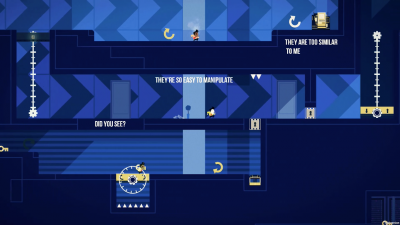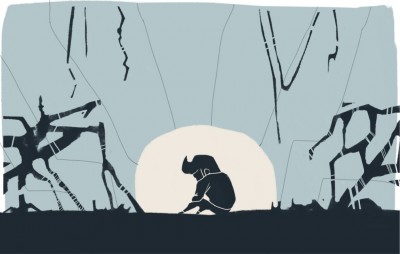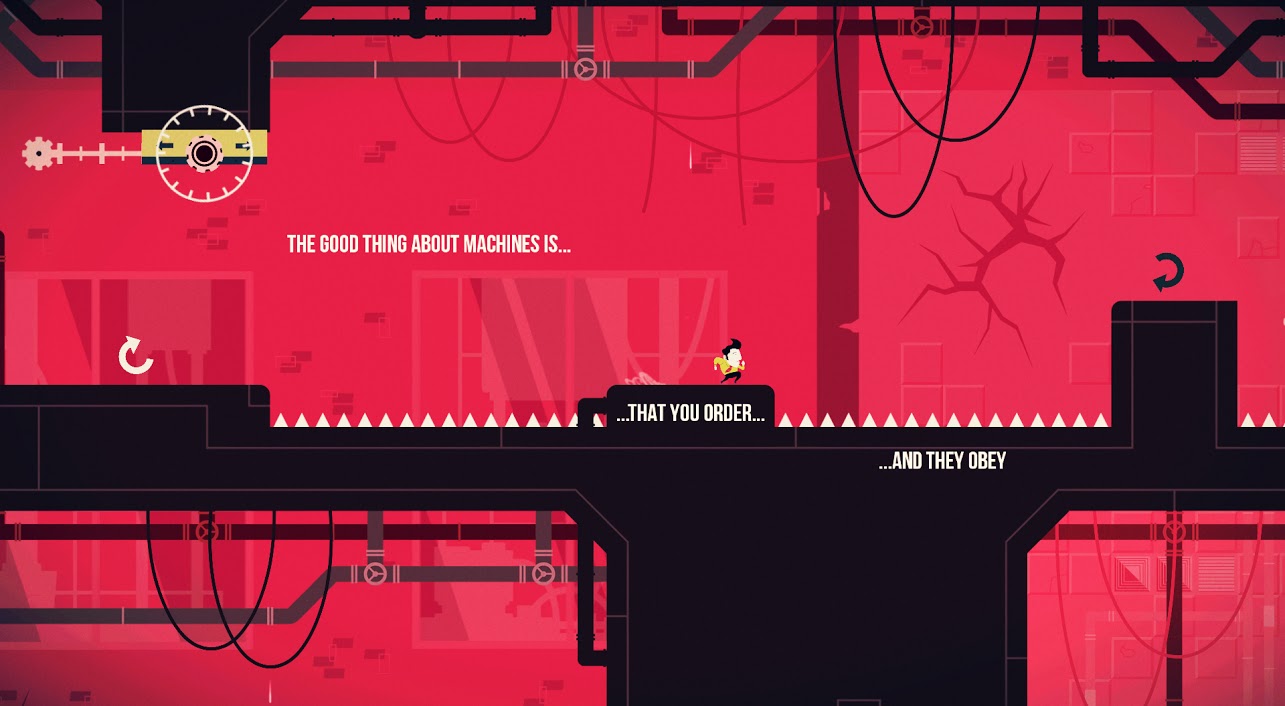Victor Velasco: Existentialism and Platforming in -KLAUS-
Art
My first encounter with -KLAUS- was at PSX 2015. I sampled a few stages while Victor Velasco, the game’s Creative Director and La Cosa Entertainment’s CEO, explained some of its concepts and features. I walked away from the experience thoroughly entertained, anticipating its upcoming release. On Jan. 19, 2016, it arrived on the PlayStation 4, and I finally got my chance to fully immerse myself in this intriguing platformer art piece straight out of my hometown of Los Angeles, CA. After spending the next week with -KLAUS-, I ingested a captivating experience that left me contemplating my place in the world, and for that it has my respect. Recently I had the opportunity to pick Victor Velasco’s brain for some insight into how the cogs fell into place.
 SLUG: For the people playing at home, what, or who, is -KLAUS-?
SLUG: For the people playing at home, what, or who, is -KLAUS-?
Victor Velasco: -KLAUS- is a PS4 existential platformer with a focus on narrative and experimental gameplay.
SLUG: How did La Cosa Entertainment form? Were there seven people to start or did seats open and fill?
Velasco: At the beginning there were only the two of us: Ginaris Sarra and me dealing with the idea of the game. After that, we contacted Luis Vieira, a great programmer, and from that point on we started contacting people we needed. I think that this was crucial because in that way when the backgrounds artists arrived, the main mechanics and the basic design of the game were already set up.
SLUG: How long has -KLAUS- been in development?
Velasco: I came up with the idea about four years ago: An official who rebels against the system while searching for his own identity. The first version won second place in a Latin American contest and after that we focused on the PS4 version. The current version of -KLAUS- has been in development for about two years.
 SLUG: What inspired -KLAUS-, in both its narrative and platforming mechanics? They seem inextricably linked. Last time we spoke at PSX 2015, you mentioned something about this conceptually starting as a short film; am I remembering that correctly?
SLUG: What inspired -KLAUS-, in both its narrative and platforming mechanics? They seem inextricably linked. Last time we spoke at PSX 2015, you mentioned something about this conceptually starting as a short film; am I remembering that correctly?
Velasco: Our inspiration was our own lives. Ginaris and I were in a point in our lives where we were frustrated with a couple of things. I’m a filmmaker, but also a system engineer—I worked for an insurance company for about two years. It’s a good company, don’t get me wrong, but it was not hard to see myself as another number, a replaceable gear of that big machine that was the company. I also had the idea of a game in which the player is some sort of god and the main character is like a son and can rebel against his father and have his own personality while he breaks the fourth wall.
Those two ideas plus the anime (like Cowboy Bebop and Akira), video games (Mega Man, Super Meat Boy) and music influences (Kraftwerk) and films (Irreversible) made the game what it is today.
SLUG: What was the greatest challenge you, whether individually or as a team, faced during production? How did you overcome it?
